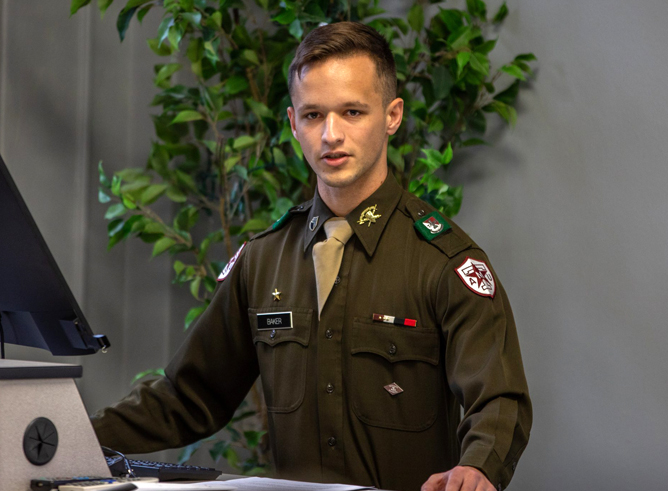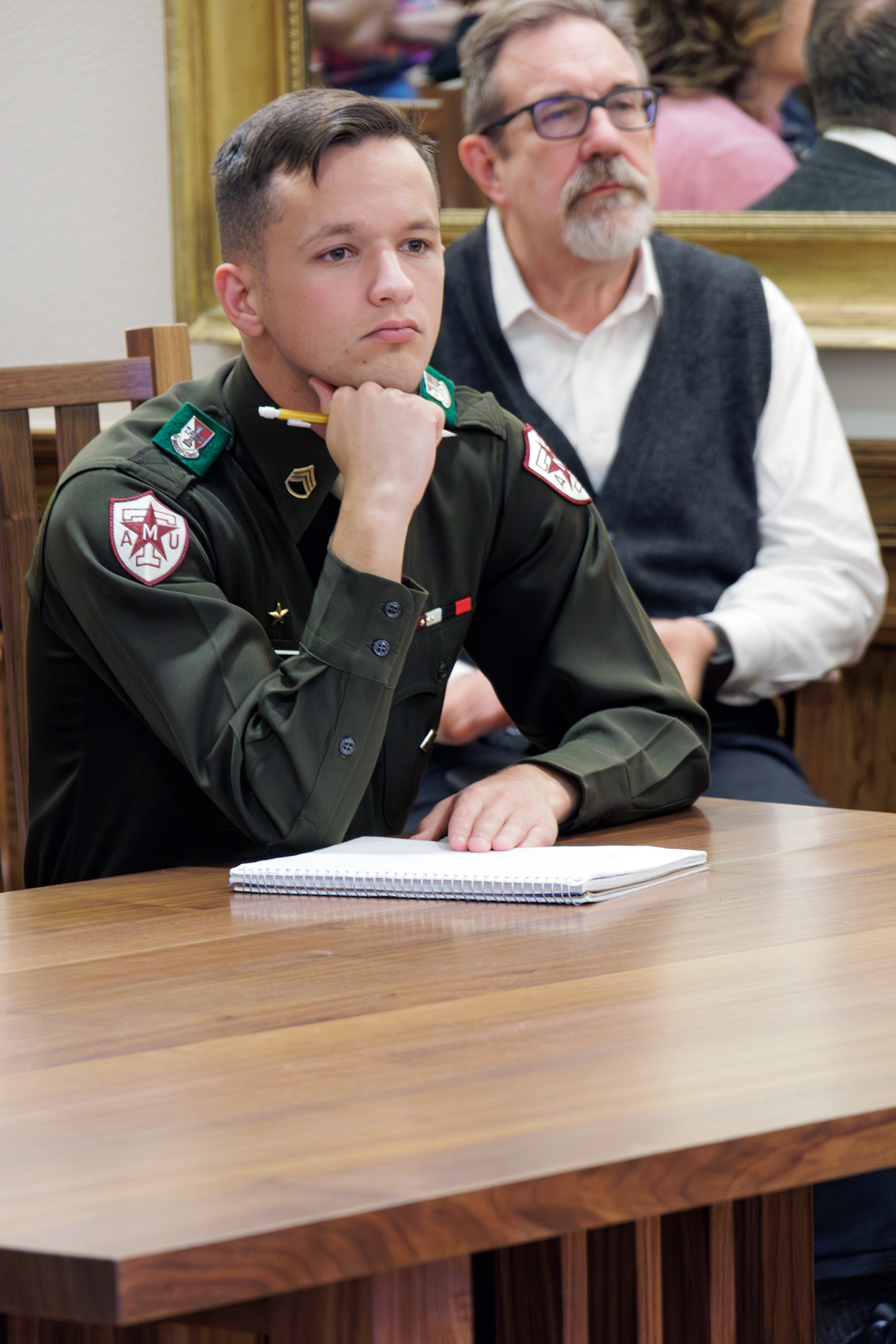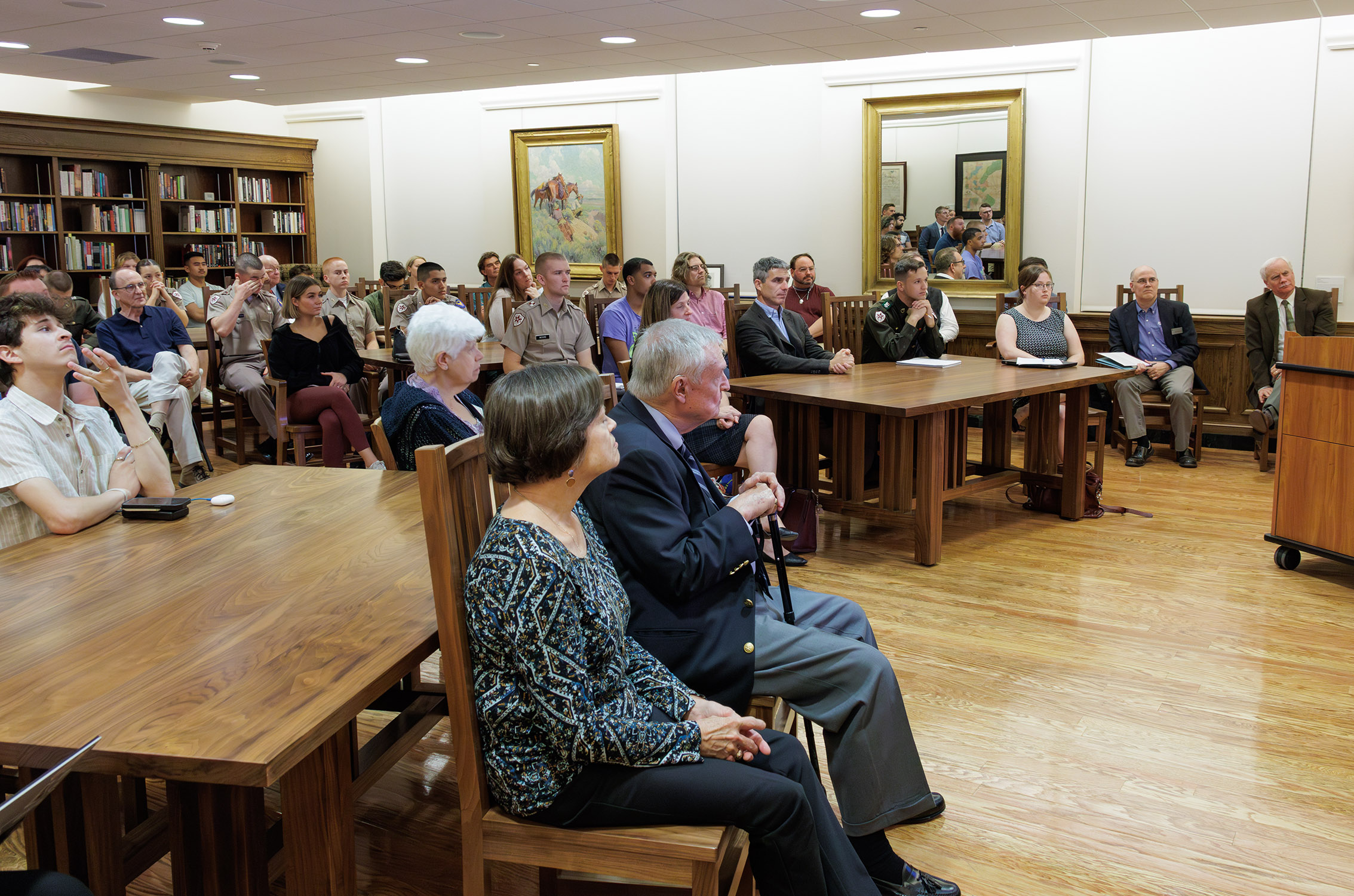
Members of the Texas A&M University Corps of Cadets represent a wide range of interests, hobbies and career goals. For cadet Jackson Baker ‘25, his work with Texas A&M’s History and Anthropology Departments as a history research intern has reflected his passion for honoring Aggies who have served but never returned home.
“As a history research intern, I chose to focus on identifying, categorizing and mapping the locations of all Aggie servicemen from World War II through the Vietnam War who are currently missing in action (MIA)," explained Baker, a junior who is majoring in history. "My research also seeks to identify ways for Texas A&M to honor the service and sacrifices of those MIA Aggies."
A project that has been ongoing since May of 2022, Baker has worked closely with his supervisor, Dr. Erika Bravo ‘16 ‘20, who is Texas A&M’s Defense POW/MIA Accounting Agency Research Partner Historian.

“Jackson had a vision early on that Aggies who are still unaccounted for need to be formally memorialized by the university," Bravo said. "In order to do so, a complete and accurate list of names needed to be produced. The few published sources Jackson had to work with were not complete or always accurate and Jackson had to do a lot of thorough checking himself through different records in addition to organizing the information he found.
“Wanting to produce a story map that would interactively display the potential loss locations of the MIA Aggies, their photos and their stories took a lot of time and effort. Jackson had to seek out experts in GIS and learn how to use software in addition to putting in all the data. Jackson has exemplified the Aggie core value of selfless service through this project, his love for history and research, and his passion for honoring our service personnel who never came home."
Baker presented his findings and interactive map design at the Nov. 9 Never Forgotten: Conflict Archaeology and Military History at Texas A&M Symposium. Attendees included faculty and students from the history and anthropology departments and greater research field, but the room was filled with Baker’s Corps buddies who sought to support him and his work.
“It was great to have my buddies there with me," Baker said. "The first thing we were told as fish [freshmen] is that we marry and bury our buddies, meaning they’ll be with you for the rest of your life. The Aggies who are missing in action were never able to have that chance with their own friends. This project underlines that point for me, and I am thankful everyday for the support I have from my buddies.”

Baker’s project is deeply rooted in Texas A&M’s military history and core values, and he hopes that his work will be furthered by others in the future. Though the project originated from Baker’s original work, there is potential for other students and faculty members in the department to expand upon its findings.
“I hope this research will serve as a platform for future students and faculty to track progress towards future recovery efforts," Baker said. "I hope that my research will continue to be edited, added to and further researched as others take over the project in the future.
“I believe it is very important for students to know about the service and sacrifices of these Aggies, as their lives represent true selfless service. I also believe it is our duty as a school to remember and honor those who gave their life and have not yet returned home.”
Baker has used his time, both at Texas A&M and in the Corps of Cadets, as an opportunity to work toward recognizing those who gave their lives in defense of America’s freedom. Though just one of the many ways that cadets have represented the Corps off the Quad, Baker’s work has certainly made a difference at Texas A&M and in the stories of those Aggies who are missing in action.
This story was originally published by the Texas A&M Corps of Cadets.
